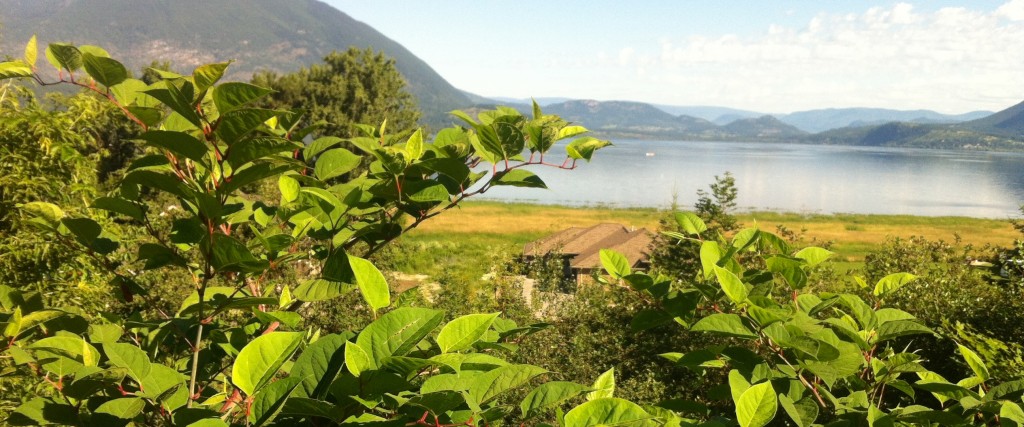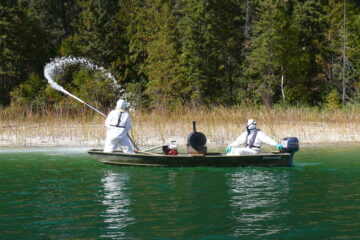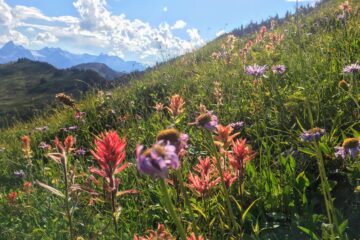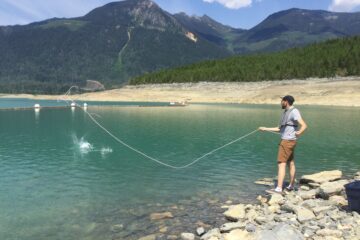Since its inception this spring, the Columbia Shuswap Invasive Species Society has been hard at work documenting and taking action on invasive species in the region. Thanks to support from BC Hydro, the Columbia Basin Trust, the City of Revelstoke and Kozak’s Sawmills, visitors to the Greenbelt can now learn about priority invasive plants while out for a walk on the popular Greenbelt walkway.
The new signage will help raise the profile of invasive plants in the community. When the snow-line begins to creep to valley bottom, people often forget about the impacts invasive species have on our natural environment. Yet autumn is critical to prevent their spread as most plants have set seed by the end of the growing season. Improperly disposed of garden waste can lead to new infestations of invasive plants in otherwise undisturbed areas.
While not all garden plants are invasive, it is better to err on the side of caution; bag and take all ornamentals and non-vegetable garden waste to the CSRD landfill when putting your garden to bed. Prevention is key as it is often an up-hill battle with invasive species.
Japanese knotweed, a bamboo-like plant widely planted as an ornamental, is notorious for being improperly disposed of. These invasive plants are aggressive and difficult to remove, damaging infrastructure and eroding riparian areas. New infestations of knotweed have been found at multiple illegal dump sites; a single node along the plant’s cane can sprout an entirely new plant and problem.



